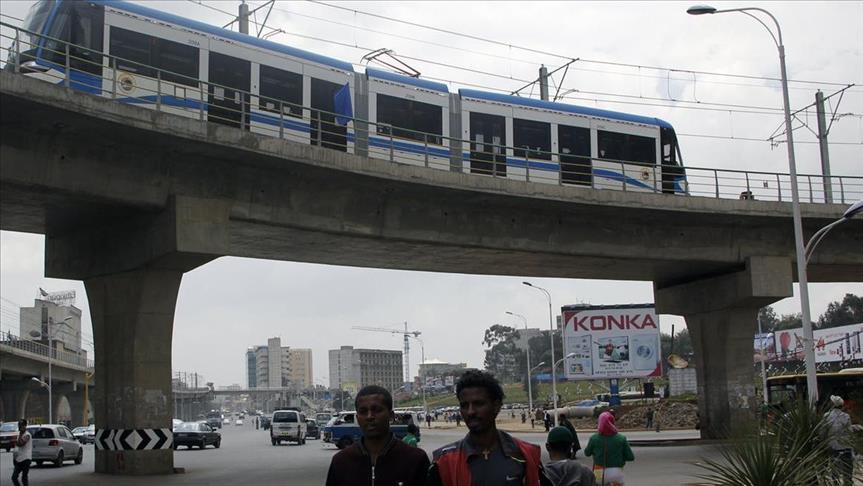
Ankara
ADDIS ABABA, Ethiopia
In an interview with Anadolu Agency, African Development Bank (AFDB) President Akinwumi A. Adesina said that he expects the African economy to grow at from 3 to 4 percent this year.
For Adesina, that is a respectable rate of growth in the current weak global economy.
“If you look around the world, if you have countries that have growth rates of even 3 percent or 4 percent as projected for Africa, they will be very happy. But Africa is doing very well; it is quite resilient. It is still posting about 3.6 percent GDP growth.
For Adesina, that means Africa is still the place to invest in.
“You know, we still have $64 billion of foreign direct investment coming to Africa. Africa remains the place where investors want to invest in,” Adesina said.
But the key transformation for the African economy is to move from simple commodities exports to higher value-added goods and services.
“Africa has first and foremost to expand its export market beyond just a few countries, to export to a wider market. Then, Africa has to stop exporting primary commodities. I’ve never seen any country or region that has prospered by exporting raw commodities,” Adesina said.
“Africa today accounts for 75 percent of the global market for cocoa, but it only has 2 percent of the chocolate market in the world and the market for chocolate in the world is $100 billion per year. It does not make sense,” Adesina pointed out.
“Africa has to process, add value to everything, whether it is metals and minerals, whether it is agricultural products, whether it is oil and gas. That is why part of the AFDB’s new strategy is on private sector engagement for industrialization going forward; supporting African countries to develop industries,” Adesina said.
Investment should be directed to creating jobs, Adesina explained.
“The nature of the growth process has not been very good in terms of jobs. That is because the focus has not been so much on the real sectors where the jobs could be created. Most of it has been in the area of portfolio investments and the service industries, but not in agriculture, and not in manufacturing and these are where jobs are created,” Adesina said.
“And what we are doing at the AFDB is we are going to be supporting countries to revive their agriculture, transform agriculture as a business and not as a way of life; to have agro-allied industries that allows you to very rapidly change the sector in a way that can actually create a lot of jobs. The second is we are going to be doing more to support small and medium size enterprises. Today SMEs in Africa account for 95 percent of all the businesses we have,” Adesina said.
Further, the AFDB will work to change curricula at universities to make them more adapted to enabling students in the workplace, Adesina said.
“And we will encourage programs that orient university students to entrepreneurship,” Adesina said.
The AFDB will focus on five major areas in its strategy, Adesina explained.
“The first one is to light up and power Africa; to make sure Africa has electricity. The second one is to feed Africa, encourage food production. The third one is to industrialize Africa: To solidify industrialization that we can create a lot of jobs. The fourth is to promote investment in ports, in rails, in transnational highway infrastructure that will allow Africa to build a wider market for itself. And finally, the fifth one is to improve the quality of life for Africans, so improving access to water, access to sanitation, drainage in urban areas and public health care infrastructure,” Adesina said.
Finally, Africa must solve its energy problem, Adesina continued.
“Today, we have roughly 650 million Africans do not have access to electricity. The AFDB is supporting a new deal for energy in Africa, so that there will be universal access to electricity by 2025. It means that the cost of doing business on the continent will go down,” Adesina said.
Anadolu Agency website contains only a portion of the news stories offered to subscribers in the AA News Broadcasting System (HAS), and in summarized form. Please contact us for subscription options.

